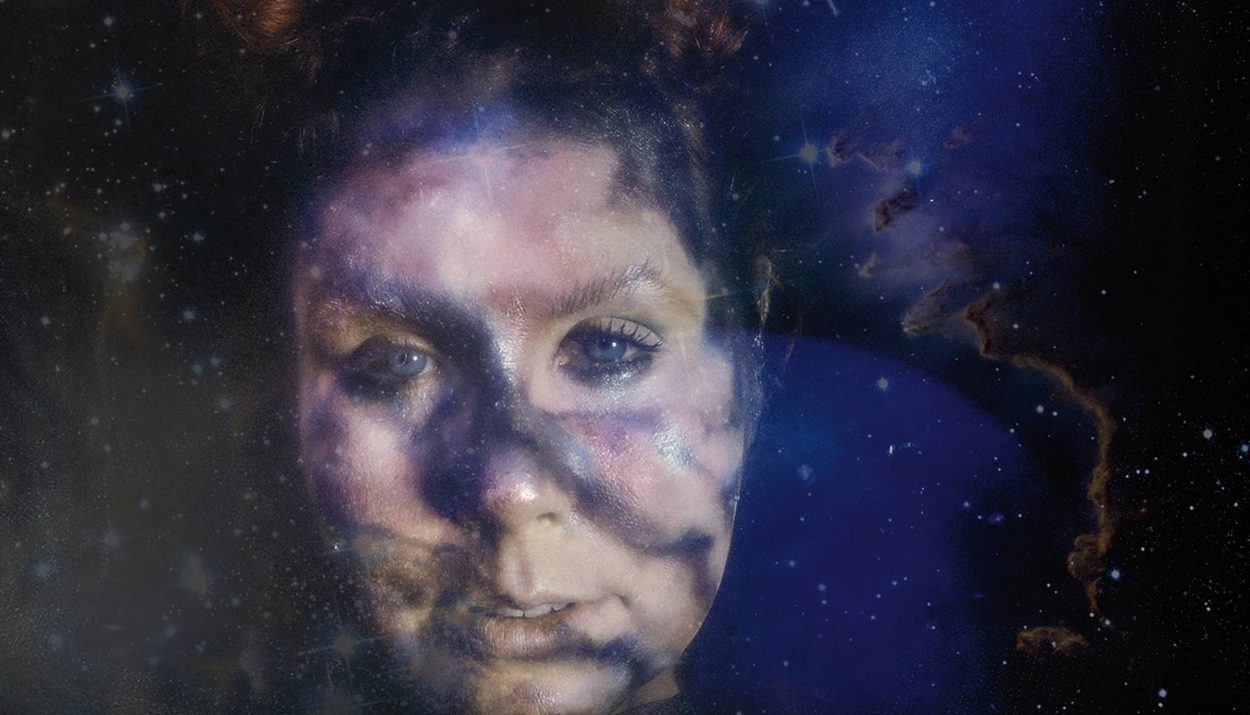If you’ve ever wanted to feel the world’s weight, Jessi Robertson’s album, “Dark Matter,” released in October this year, delivers it with intimacy and power. A Nashville-based singer-songwriter whose voice has drawn comparisons to Kate Bush, Stevie Nicks, and PJ Harvey, Robertson has spent nearly two decades crafting confessional and ethereal songs. From her early days in upstate New York to Brooklyn, where she released ‘Small Town Girls’ (2011) and ‘I Came From The War’ (2014), and now in Nashville, Robertson has honed a voice that is at once delicate, stormy, and magnetic.
With this album, Jessi has produced her most personal and daring work yet. Following her 2025 diagnosis of Autism Spectrum Disorder, the album was born from a place of deep reflection, self-examination, and creative unmasking. Robertson digs into discarded songs from 2017 to 2023, reconstructing them through a lens of vulnerability, self-trust, and cosmic imagination. This resulted in an intimate and expansive album.
Opening the album is “Spooky Action at a Distance,” which dives into a beautifully haunted inner world. Robertson’s beautiful and intimate vocals tremble at the edges, conveying fragility and determination as she steers the lyrics, “keep defying fate.” This track’s atmospheric production creates the sensation of being pulled through a shadowed environment. Listening to it feels like staring into the night sky, knowing there is darkness and light ahead.
“Every day is a battle to stay on my feet,” Robertson confesses, and you can feel it in every note of the album’s second track, “Shadow War.” Her voice effortlessly moves between whisper-soft vulnerability and surging intensity, echoing the song’s theme of self-conflict. The dark, slow-burning percussion and shadowy guitar textures of the song mirror the emotional turbulence, making the track a compelling meditation on inner struggle and resilience.
A drifting, surreal meditation, “In Dreams Awake” paints heavenly imagery, “two moons… racing toward the center of the sky,” while Robertson’s hushed vocals maintain a fragile steadiness. The gentle percussion, spacious guitars, and soft textures enhance the sensation of floating between consciousness and reverie. This song is a quiet, reflective moment, yet every repetition of “keep on trying” carries a steady, understated strength.
In “The First Law of Thermodynamics,” Robertson transforms physics into poetry. Her vocals, intimate yet expansive, glide over airy guitars, lightly brushed percussion, and subtle ambient layers that create a huge sonic landscape. Lines like “some strange life is singing” feel suspended in time, and the song becomes a reflection on movement, memory, and the continuity of life itself. This is a contemplative, weightless, and deeply grounding sound.
The album’s cosmic exploration continues with “Einstein-Rosen Bridge,” a song about emotional gravity and transformation. Robertson’s warm and weathered vocals transport disorientation and longing, particularly in lines like “I can’t escape this great force, achingly unseen.” Starlit synths and echoing textures underscore the sense of being pulled toward change, while her insistence on “I wanna be better than I was before” grounds the track in hope. This is a haunting, intimate, and meditative song.
The sixth track, “Persistent Memory,” feels like a fever dream realized in sound. Lines like “sand slides through my fingers” and “drowning on dry land” reflect a sense of confusion that Robertson delivers with piercing vocals. Sparse percussion, submerged guitars, and shimmering ambient textures allow the song to breathe, highlighting its exploration of memory, time, and fleeting consciousness. It’s fragile, yet precise; a musical mirror of emotional drift.
“7 days is too long,” Robertson sings, the words a pulse of mounting tension. “Rogue Star” captures emotional unraveling, pairing raw, trembling vocals with sparse, atmospheric instrumentation. The cosmic metaphors, “a collision waiting to happen,” underscore the universality of trying to hold oneself together. The song’s quiet intensity leaves a lasting impression, making it one of the album’s most affecting moments.
Closing the album, “Object of Desire” meditates on humanity’s entanglement with technology. Robertson’s vocals balance smoky vulnerability with deliberate power, delivering lines like “protect and capture all my broken bits and bytes” with quiet resignation. The minimalist production and subtle electronic textures frame the voice front and center, allowing the song to feel intimate and expansive. It’s an exploration of self, longing, and transcendence, leaving listeners suspended between reflection and awe.
“Dark Matter” thrives on sparse, atmospheric production that highlights Robertson’s voice as the emotional core. Each track is carefully arranged, yet the minimalism allows for room to breathe, giving every instrument, echo, and texture a sense of purpose. Jessi Robertson’s use of guitar, bass, drum programming, and ambient synths creates a cosmic, expansive landscape that perfectly complements the album’s themes of self-discovery and existential exploration.
Listening to “Dark Matter” feels like stepping into a private universe. It’s intimate yet vast, fragile yet resolute, and dark yet hopeful. Jessi Robertson has crafted a personal purification and an invitation for listeners to confront their hidden depths. This is more than an album. It’s an act of courage, a testament to authenticity, and a masterclass in turning vulnerability into art. Jessi Robertson is a voice to be reckoned with. She’s an artist unafraid to confront darkness, both cosmic and personal, and light it up with emotional clarity. Welcome her not just to the stage of music, but to the inner orbit of anyone who has ever felt like they were “too much or not enough.”
Listen to the “Dark Matter” on Spotify
Follow Jessi Robertson here for more information






